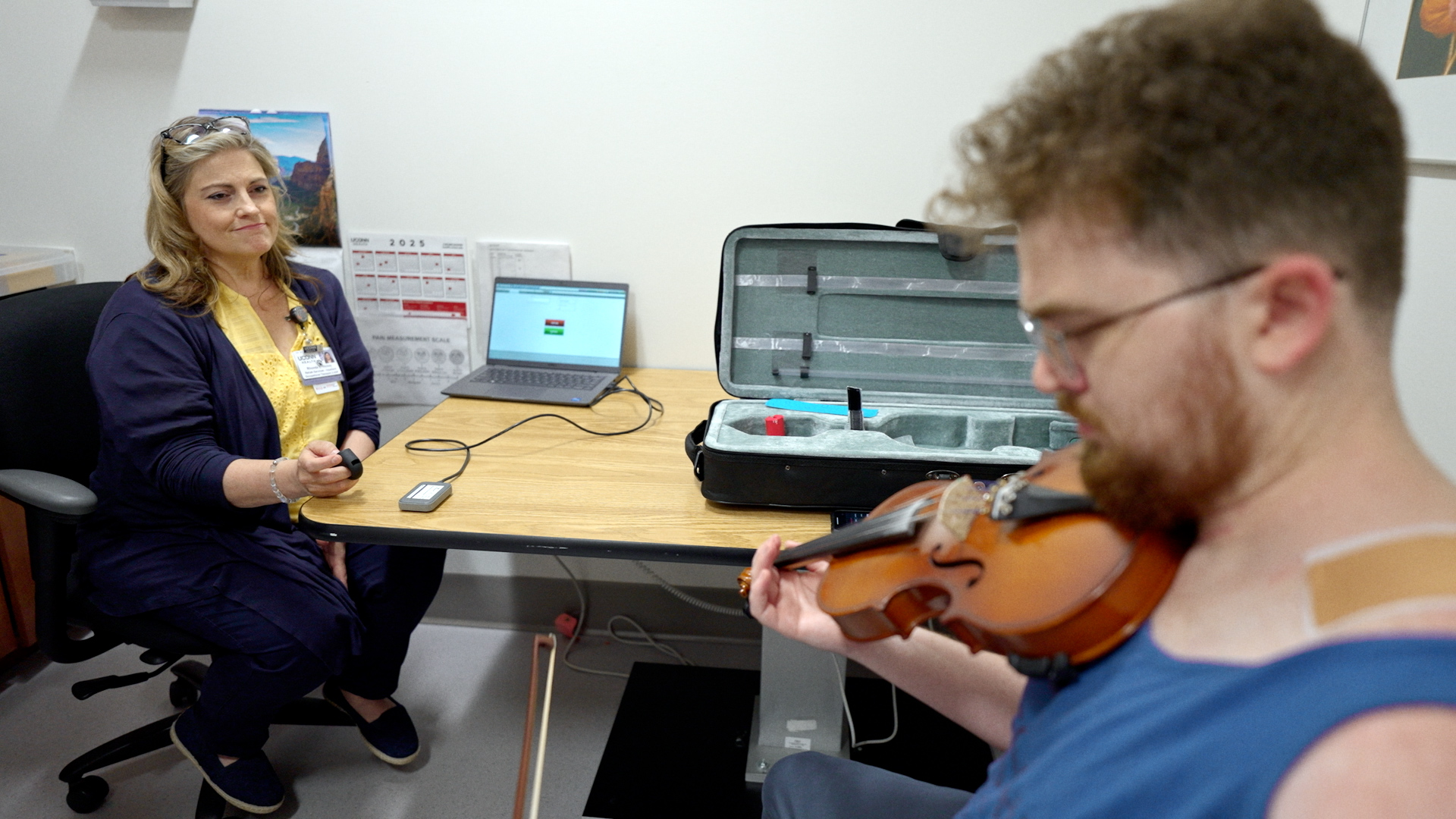
The immune system: it’s your body’s watchdog, constantly vigilant for things that don’t belong. Bacteria, viruses, foreign bodies of all sorts – it’s the immune system’s job to keep them from doing you harm. And researchers at the University of Connecticut are working hard to develop new weapons to deploy in this never-ending battle.
Yong Wang, an assistant professor in the School of Engineering, has received more than $1 million from the National Science Foundation to pursue his research into the field of artificial antibodies: laboratory-created compounds inspired by a natural component of the immune system that show promise in the fields of disease diagnosis, management, and treatment. Artificial antibodies can also be applied to biosensing, cell-separation, and biomaterial development.
Wang’s research aims to produce artificial antibodies that can be used as new treatments for cancer. The antibodies he is working on will have the ability to deliver powerful cancer-fighting drugs directly to tumor cells, leaving healthy cells intact.
“This is the next big frontier in fighting cancer and many other diseases,” says Wang. “We’re proud to be on the frontlines.”
Antibodies are proteins generated by the immune system. The functional component of these proteins lies in the binding sites, which are the parts of the antibody that actually latch on to foreign bodies.
Each antibody has two binding sites, and each binding site has a specific shape. Invading bacteria or virus cells are covered with proteins of various shapes that extend outward from the cell membrane. If an antibody makes contact with a cell whose proteins “fit” into its binding site, then binding takes place and the antibody attaches to the foreign cell. By binding to the surface of invading cells, antibodies can disable certain biological functions and flag the intruders for destruction by other components of the immune system.
It’s an effective system, and most of the time it gets the job done. But it does have its problems. Sometimes the body simply does not have antibodies capable of binding to certain viruses; other times, it may not recognize cells as a threat.
“Cancer cells, for example, are our own cells,” says Wang. “In general, the immune system will not kill cells that it recognizes as our own. Even though cancer cells are harmful to the body, they are a part of us, so the immune system does not recognize them as a threat. That’s why cancer cells often survive.
“There’s a lot of research going on right now into techniques for stimulating our immune system into recognizing cancer cells as a threat,” he adds. “What my team is currently doing is working toward designing antibodies that will be able to recognize and attach to cancer cells.”
The task is a three-part process. Wang’s team will work simultaneously to develop the binding sites and the protein polymer that will constitute the body of the antibody. The third step involves attaching the binding sites to the surface of the protein.
But the antibodies that Wang’s team is working to develop are far different from the antibodies found in the human body.

“The antibodies that we are working to develop have an added function,” says Wang. “Natural antibodies only have the two binding sites; they bind to foreign cells, and other components of the immune system must work to get rid of them. Our artificial antibodies are going to be able carry out treatment without the help of other cells.”
This ability is due to the shape that the artificial antibodies will have. Built into the polymer body will be a chamber that scientists can fill with all sorts of useful things: drugs to fight the cancer, and dyes and contrast agents to make tumors visible during scans. Once the binding sites latch onto a cancer cell, the chamber will empty whatever drug it is carrying into that cell.
“This is an example of an extremely targeted delivery system,” says Wang. “Since the antibodies will only recognize and attach to the cancer cells, only those cells will receive the drug. The healthy cells will remain unaffected, which is not possible with the cocktails and chemotherapies currently in use.”
This technique is not limited to fighting cancer: artificial antibodies can theoretically be produced to recognize and treat any disease, says Wang. MRSA, tuberculosis, and drug-resistant strains of many other diseases may one day be treatable through the use of artificial antibodies.
Other researchers involved in the artificial antibody research include Lei Zhu, a former associate professor at UConn who is now at Case Western Reserve University; and four members of UConn’s School of Engineering – assistant professor Tai-Hsi Fan, and graduate students Jing Zhou, Weiqiang Cao, Boonchoy Soontornworajit.


